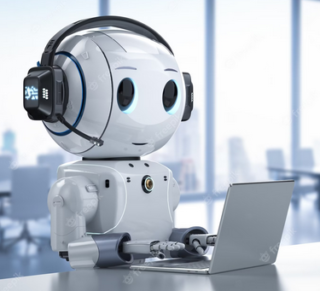Artificial intelligence (AI) has already made significant inroads in enhancing customer care processes, and its potential for further transformation is vast. From chatbots to predictive analytics, AI has revolutionized the way businesses interact with their customers, providing faster, more efficient, and more personalized solutions.
One of the key areas where AI has made a significant impact is through chatbots. Chatbots can handle routine customer service inquiries, such as password resets and tracking orders, freeing up human agents to focus on more complex customer issues. Chatbots are available 24/7, which means customers can get help whenever they need it, without having to wait for a human agent to become available. Additionally, chatbots are able to handle multiple customer inquiries simultaneously, making the customer service process even more efficient.
Another way AI has enhanced customer care processes is through the use of predictive analytics. By analyzing customer data, businesses can anticipate customer needs and tailor their customer service approach accordingly. Predictive analytics can help businesses identify customer trends, such as buying behavior and preferred communication channels, allowing them to create more personalized experiences for their customers. This can lead to improved customer satisfaction, loyalty, and overall business success.
AI can also improve the overall customer experience by providing customers with personalized recommendations and solutions. By analyzing customer data, AI can suggest products or services that are relevant to the customer’s needs and preferences. This not only makes the customer feel valued and understood but can also lead to increased sales and revenue for businesses.
While AI has already made significant inroads in enhancing customer care processes, there is still vast potential for its adoption in the future. According to a report by Gartner, by 2025, customer service organizations that embed AI in their multichannel customer engagement platform will elevate operational efficiency by 25%. As AI technology continues to evolve, we can expect to see even more advanced applications in the customer service realm.
One of the most exciting developments in AI for customer service is the emergence of conversational AI. Conversational AI can analyze customer inquiries and respond in natural language, providing a more human-like experience. This can help businesses build stronger relationships with their customers and increase customer satisfaction. Conversational AI can also learn from previous interactions, improving its ability to respond to customer inquiries over time.
Another promising development in AI for customer service is the use of augmented reality (AR). AR can provide customers with visual assistance, allowing them to see how products would look in their home or office before making a purchase. This can lead to increased customer confidence in their purchasing decisions and can help reduce returns and exchanges.
Despite the many benefits of AI for customer service, there are still concerns about the potential impact on jobs and the workforce. While AI can handle many routine tasks, there will always be situations where human interaction is necessary. However, businesses can mitigate these concerns by providing training and development opportunities for their employees to adapt to the changing nature of customer service.
In conclusion, AI has already made a significant impact in enhancing customer care processes, and its potential for further transformation is vast. From chatbots to predictive analytics, AI has revolutionized the way businesses interact with their customers, providing faster, more efficient, and more personalized solutions. As AI technology continues to evolve, we can expect to see even more advanced applications in the customer service realm, such as conversational AI and augmented reality. While there are concerns about the potential impact on jobs and the workforce, businesses can mitigate these concerns by providing training and development opportunities for their employees to adapt to the changing nature of customer service. Overall, AI is poised to play an increasingly important role in enhancing the customer experience and driving business success in the years to come.
